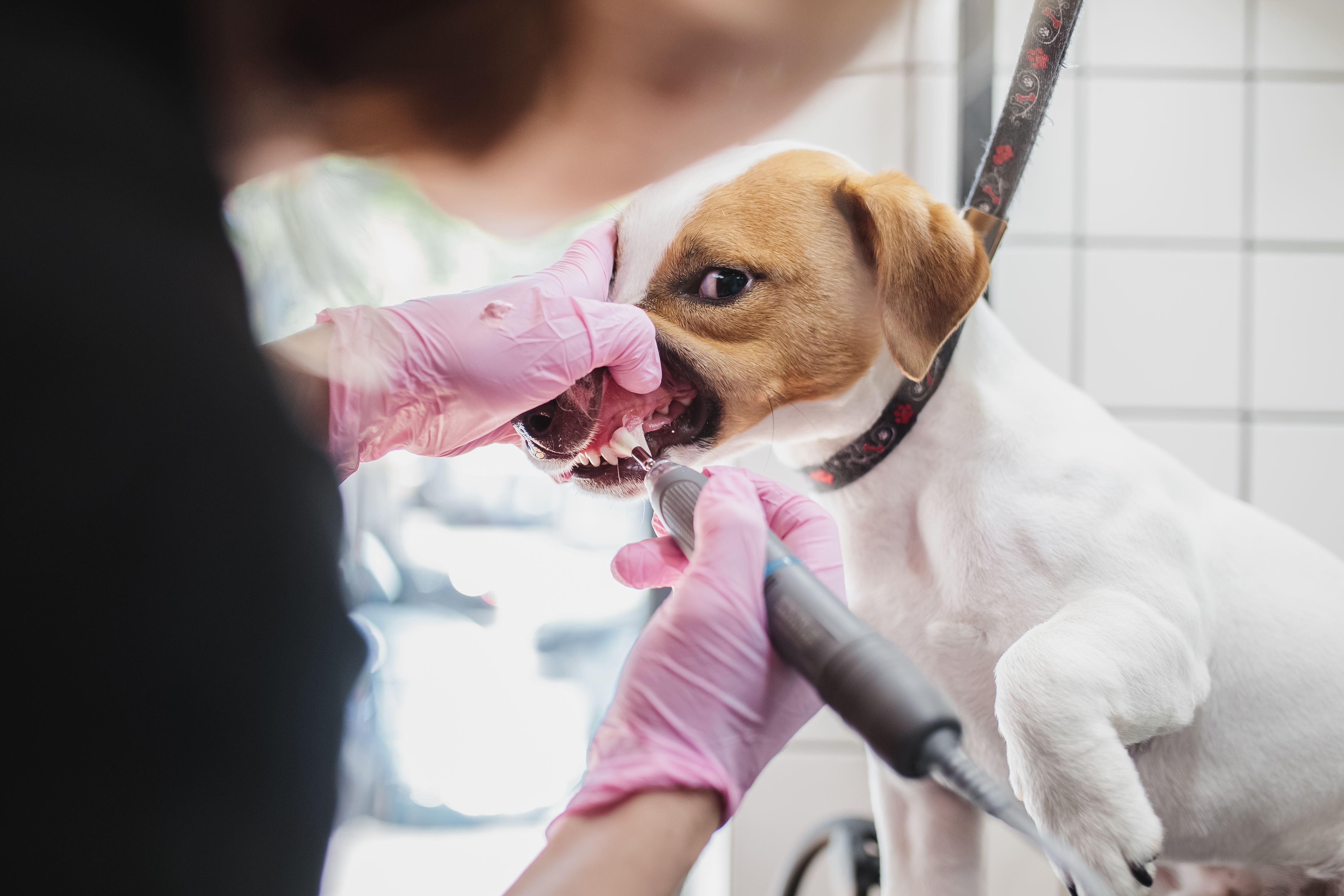10 Warning Signs Your Dog Needs Immediate Veterinary Attention
Dogs, our loyal companions, often communicate their needs and discomforts through subtle cues. Unlike humans, they cannot express their feelings verbally, making it crucial for pet owners to be vigilant and responsive to their non-verbal signals. Understanding these signals can be the difference between addressing a minor health issue promptly or facing a more severe problem later. This article delves deep into the often-overlooked signs that indicate your dog's health requires urgent attention. By recognizing these 10 crucial clues, you can ensure your furry friend receives the care they need, maintaining their well-being and your peace of mind.
1. Sudden Changes in Appetite

A dog's appetite is a direct indicator of its health. While it is normal for dogs to occasionally eat less, a sudden, prolonged change in eating habits can be a red flag. If your dog refuses food for more than a day or two, it may be suffering from an underlying health issue such as dental problems, gastrointestinal distress, or even more severe conditions like organ failure. Conversely, a sudden increase in appetite can also indicate health issues such as diabetes or Cushing's disease. Monitoring your dog's eating patterns and consulting a veterinarian when these changes occur is vital for early detection and treatment of potential health problems.
2. Excessive Thirst and Urination

While increased water intake might seem harmless, it can be a symptom of several health conditions. Dogs that suddenly start drinking excessive amounts of water and urinating more frequently might be experiencing diabetes, kidney disease, or even a urinary tract infection. These conditions require prompt medical attention to prevent further complications. Keeping track of your dog's water consumption and bathroom habits can provide critical insights into its health. If you notice any significant changes, it's essential to seek veterinary advice to determine the underlying cause and initiate appropriate treatment.
3. Unexplained Weight Loss or Gain

Weight fluctuations in dogs can be as concerning as they are in humans. Unexplained weight loss might suggest issues such as parasites, thyroid problems, or cancer. On the other hand, sudden weight gain could indicate hormonal imbalances, such as hypothyroidism or Cushing's disease. Regularly weighing your dog and keeping a record of its weight can help you notice these changes early. If your dog experiences significant weight changes without an obvious reason, it is crucial to consult a veterinarian to rule out or address any serious health concerns.
4. Changes in Coat and Skin Condition

A dog's coat and skin are often reflections of its internal health. Dull, brittle fur or excessive shedding can signal nutritional deficiencies, allergies, or skin infections. Similarly, the presence of lumps, bumps, or persistent itching should not be ignored, as they could be symptoms of more severe conditions like tumors or skin diseases. Regular grooming and close inspection of your dog's skin and coat can help you detect these issues early. If you notice any unusual changes, seeking veterinary care is essential to diagnose and treat any underlying conditions effectively.
5. Persistent Vomiting or Diarrhea

Occasional vomiting or diarrhea in dogs is not uncommon and can result from minor dietary indiscretions. However, persistent or severe episodes can indicate more serious health issues, such as gastrointestinal blockages, infections, or poisoning. Chronic gastrointestinal problems can lead to dehydration and nutrient deficiencies, further complicating your dog's health. Monitoring your dog's digestive health and seeking veterinary care if symptoms persist for more than a day or two is crucial. Early intervention can prevent escalation and ensure your dog receives the necessary treatment.
6. Lethargy and Reluctance to Exercise

Dogs are naturally energetic creatures, and a sudden decrease in energy levels can be alarming. Lethargy or reluctance to exercise might be a symptom of various health issues, including infections, heart disease, or pain from arthritis or injuries. If your dog shows a noticeable decline in activity levels or seems unusually tired, it is essential to investigate further. Encouraging regular play and exercise can help maintain your dog's physical health, but if lethargy persists, a veterinary evaluation is necessary to diagnose and address any underlying health problems.
7. Difficulty Breathing or Persistent Coughing

Breathing difficulties or persistent coughing in dogs should never be ignored. These symptoms can indicate respiratory infections, heart disease, or even allergies. In some cases, they might be signs of more severe conditions such as lung tumors or heartworm disease. Observing your dog's breathing patterns and noting any changes in its respiratory health is crucial. If your dog experiences labored breathing, wheezing, or a chronic cough, seeking veterinary care immediately can help diagnose and treat the condition before it becomes life-threatening.
8. Changes in Behavior or Mood

Behavioral changes in dogs can be subtle yet significant indicators of health issues. A normally friendly dog that becomes aggressive or a playful dog that turns withdrawn might be experiencing pain, anxiety, or neurological problems. Other behavioral changes, such as increased vocalization or restlessness, can also signal discomfort or distress. Paying attention to your dog's behavior and mood can provide valuable insights into its well-being. If you notice any drastic changes, consulting a veterinarian or a professional behaviorist can help identify the cause and guide you in providing the necessary care.
9. Bad Breath and Dental Issues

Oral health is a critical aspect of your dog's overall well-being. Bad breath, often dismissed as "doggy breath," can be a sign of dental disease, infections, or more severe systemic issues. Periodontal disease is common in dogs and can lead to tooth loss, pain, and even affect vital organs if bacteria enter the bloodstream. Regular dental check-ups, brushing your dog's teeth, and providing dental treats can help maintain oral health. If your dog exhibits persistent bad breath, swollen gums, or difficulty eating, a veterinary dental examination is essential to address any underlying issues.
10. Unusual Discharges or Odors

Unusual discharges from your dog's eyes, ears, nose, or genital area can be signs of infections or other health conditions. Eye discharge might indicate conjunctivitis, while ear discharge could suggest an ear infection. Similarly, unusual odors emanating from your dog can be symptoms of skin infections, dental disease, or anal gland issues. Regularly checking your dog for any unusual discharges or odors can help you catch these problems early. If you notice anything out of the ordinary, seeking veterinary care can help diagnose and treat the condition promptly.
Being attuned to your dog's health signals is a crucial responsibility of pet ownership. By recognizing the 10 crucial clues outlined in this article, you can take proactive steps in ensuring your dog's health and well-being. Regular veterinary check-ups, a balanced diet, and attentive care can prevent many health issues from developing or worsening. Remember, early detection and intervention are key to addressing health concerns effectively. By staying informed and vigilant, you can provide your dog with a long, healthy, and happy life, strengthening the bond you share with your beloved companion.







